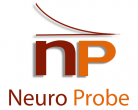When injected into animals, leukotoxin (Lx) causes acute lung injury which is associated with neutrophils infiltrating the lung tissues. However, the effect of Lx on neutrophils is still unknown, and recently it has been reported that Lx diol, a hydrolyzed metabolite, should be more potent than Lx in vitro. In this study, the authors examined the effect of Lx and its diol on human neutrophils by assessing their chemotactic response, expression of adhesion molecules, and production of peroxides. Both Lx and its diol induced chemotaxis in human neutrophils via an involvement of pertussis toxin-sensitive G-proteins, but they did not influence the expression of adhesion molecules or the production of peroxides. Furthermore, Lx synergistically affected chemotaxis with N-formyl-methionyl-leucyl-phenylalanine (fMLP), but not with endothelin-1. Neutrophil chemotaxis induced by both Lx and its diol was inhibited by phosphatidylinositol-3-kinase (PI3-K) inhibitors, but not by protein tyrosine kinase (PTK) inhibitors or by protein kinase C (PKC) inhibitors, whereas fMLP-induced chemotaxis was inhibited by PTK inhibitors, but not by PI3-K inhibitors or by PKC inhibitors. These results suggest that neutrophil chemotaxis induced by both Lx and its diol involves pathways different from those induced by fMLP. In conclusion, both leukotoxin and its diol metabolite induce chemotaxis in human neutrophils in a unique way and may act as important bioactive lipids when considering the pathological mechanism of acute lung injury.
pdf available online at: http://www.ncbi.nlm.nih.gov/pubmed/10678624
